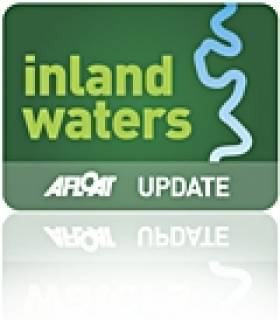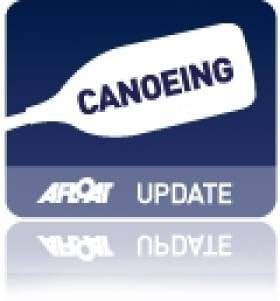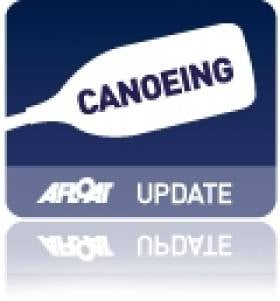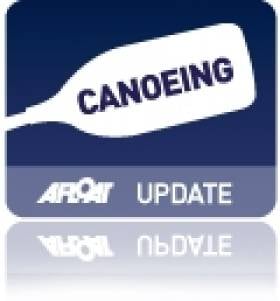Displaying items by tag: Kildare
Kildare County Council Rejects Canal Bye–Law Amendments
#inland – The IWAI has welcomed Kildare County Council's rejection of the Waterways Ireland proposed Canal Bye-law amendments passed unanimously on Monday 24 February 2014.
Speaking this week, Carmel Meegan, President of The Inland Waterways Association of Ireland (IWAI) welcomed the unanimous support from Kildare's democratically elected representatives in the Council and added that it provides further proof that "the proposed bye-laws do not put user requirements, tourism development and local communities at the centre of the regulations."
The motion was moved by Councillor John McGinley.
It has been confirmed that at the end of the brief public consultation period of 21 days on Feb 3rd communities along the waterways had sent over 2100 submissions of concern to Waterways Ireland, with over 1800 of these being passed to IWAI (for IWAI to submit to Waterways Ireland). A number of international and national organisations and community groups have allowed the IWAI to publish their submissions on our campaign web page at www.iwai.ie.
Concerns continue to be aired including questions from members of the Seanad and the Dail; national and local press articles; television and radio interviews and features; community websites; blogs and facebook pages, in the Canals and Barrow as a national resource.
Politically, this has grown to be a very big issue nationally and regionally and is featuring highly as politicians face into local elections this summer.
Mr. Jimmy Deenihan, TD, Minister for Arts, Culture and the Gaeltacht has responsiblilty for signing any new regulations into law.
The bye-laws should concern Mr. Leo Varadkar, TD, Minister for Tourism, Transport and Sport as to the potential of the 'Green and Silver' navigation route, from Dublin to the Shannon via the Grand or Royal Canals and vice versa. This is promoted by Dublin IWAI.
Further work of Mr. Phil Hogan, TD, Minister for Environment, Community and Local Government should not be ruined by Waterways Ireland doing their own thing with a national resource. The Local Government Reform Bill 2014 give localities more power.
Additionally, economic opportunities for enterprise development on inland navigations should interest Mr. Richard Bruton, TD, Minister for Jobs, Enterprise and Innovation.
The boating community is not averse to appropriate management, facility provision, and access to waterways. But boats are key attractions, as the lifeblood of the navigations, and need to be welcomed.
Egan Sets Sights on Olympic Canoeing Spot
#CANOEING - The Evening Herald reports that top Irish canoeist Jenny Egan is headed to Florida for a few months of training towards a spot at the 2012 Olympics.
A sprint and marathon racer, Egan was named as The Irish Times/Irish Sport Council's Sportswoman of the Month for May 2010 in recognition of some very impressive performances.
Indeed, the Kildare native enjoyed much success in 2012, with second place in the 5000m at the World Sprint Cup in the Czech Republic and a new Irish record in the 500m at the Canoe Slalom Worlds in Hungary among her achievements.
Heading into 2012, the Salmon Leap club member will surely be shrugging off setbacks like her crash in the heat and humidity of Singapore at the Canoe Marathon Worlds last October.
The new year brings a new focus, as Egan will concentrate on the 500m and 200m K1 sprint distances for the London games, with the final qualifiers - for just 15 spots - taking place in Poland in April.
The Evening Herald has more on the story HERE.
Rheinisch Back in the Paddle
Olympic kayaker Eoin Rheinisch was back in canoe action in Spain recently for the first time after a shoulder operation last year.
The Irish Times reports that Rheinisch, who had surgery on his left shoulder last November, placed 34th in the canoe slalom European Championships at Seu d’Urgell.
The Kildare native confirmed that his fitness has not fully returned, but is getting better "day by day".
"The real goal is to get the high-intensity fitness back,” he said.
Rheinisch has four more events on the calendar before the World Championships and Olympic qualifiers in Slovakia this September.
K1 Sprint Head-to-Head in Prosperous Next Weekend
The Irish Canoe Union will host a sprint head-to-head regatta in Kildare next weekend.
All canoeists in classes K1 200m and 500m are welcome to take part in the event, on the Grand Canal in Prosperous on Saturday 26 March starting at 10.30am.
Heats will be seeded based on previous regatta performances and personal best times. The event finals will then be decided on fastest time from heats.
Entries are open till 8pm on Wednesday 23 March. Entry forms are available via the Canoeing Ireland website.



























































